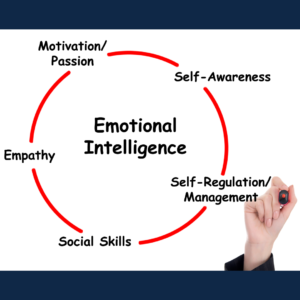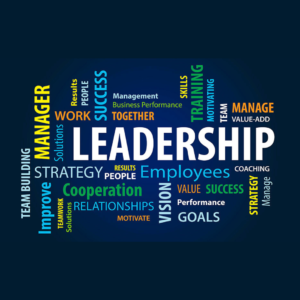In today’s dynamic challenging environment be it business, school or any organisation needs efficient leader and strong management to achieve its objectives. Leaders who can work with others well can foster individual, team and organisational success. The transformation from Good Leaders to Great Leaders is achieved by the art of practising and displaying Emotional Intelligence.
“Emotion makes thinking more Intelligent”
Emotional intelligence was formally introduced by Professor Peter Salvovey of Yale University and John Myer of the University of New Hamsphire in 1990m. Daniel Goleman a psychologist and science journalist popularised the term emotional intelligence in 1995. GOLEMAN (1998) known as the Father of Emotional Intelligence, defined
Emotional Intelligence as ‘ the capacity for recognising our own feelings and those of others for motivating ourselves and for managing emotions well in ourselves and in our relationships.
80-90% of the competencies that differentiate top performers are in the domain of emotional intelligence – Daniel Goleman
Daniel Goleman (1995) suggests that emotional intelligence consists of 5 major components’
1. Knowing our own emotions.
2. Managing one’s emotions.
3. Motivating our emotions’
4. Recognizing the emotions of others and
5. Handling relationships.
Key characteristics of emotional skills :
Self-Awareness : Having a realistic assessment of abilities
Self-Regulation : Ability to Control Emotions and impulse
Motivation : Deepest preference to achieve our goals
Empathy : It’s the ability to identify with and understand the wants , needs and viewpoints of other people
Social Skills : People with good social skills can manage disputes, are excellent communicators, and are masters at building and maintaining relationships. They can persuade and lead, Negotiate and settle disputes for cooperation and teamwork.
Benefits of Emotional Intelligence
Effective communication, building strong relationships, conflict management, decision making, purpose driven motivating and inspiring team, growth mindset, improved mental health, improved Stress Management.
Inspite of its significance, Emotional Intelligence is emphasised, voiced, gaining more popularity as a must have skill at leadership level and organisations have started training / coaching leaders
Need for Emotional Intelligence skill from Childhood
Emotional Intelligence skill is not a generic ability and it is a skill which cannot be acquired in a day immediately upon training.
Emotional intelligence plays a vital role in our day-to-day life. Healthy social and emotion skills are just as important as other developmental skills young children learn. The skills they learn now will help them build good relationship manage new situation and handled stress or disappointment. Emotional Intelligence skill can be imbibed by understanding feelings, applying and practicing them constantly.
Eco System to be created from childhood at schools, home and throughout the learning process helping them to manage stress easily, relationship building etc.. with self-awareness, self-control, motivation from within, understanding from others perspective help them evolve as efficient leaders.
A child practicing Emotional Intelligence skill – positive approach, empathetic, solves problems for self and others turns out to be a good citizen, Successful Emotionally Intelligent leaders achieving our Nations Vision and Mission.
Examples of Emotionally Intelligent leaders
History :
Mr. Mahatma Gandhi – Empathy towards even people who hurt him, decision making and influencing people to fight in the path of non violence
Mr. Abraham Lincoln – Patient, humble , confident
Film :
Birdman – Rigmann is not aware of his drivers, have to express his emotions.
In the pursuit of happiness – reflects on happiness, dreams, sacrifice, ability to overcome obstacles
Current Leaders :
Mr. Elon Musk – (Tesla and Spacex) Empowering team, Accepting criticism, Open communication, Leading by example.
Ms. Indra Nooyi – (Pepsico) Actions in acknowledging and expressing gratitude to the parents of her Senior leadership and employees.
Conclusion :
Emotional intelligence is still in its infancy, but its significance across all domains of life is undeniable. Emotional intelligence is the crucial component of effective leadership. It is important to recognize how understanding and managing your emotions as well as being aware of others feelings can help enhance relationship, strengthen communication skills, increase accountability and build trust.





Leave a Reply